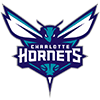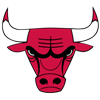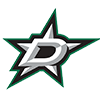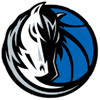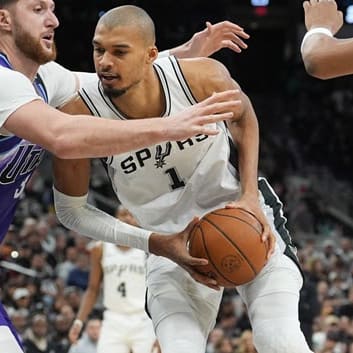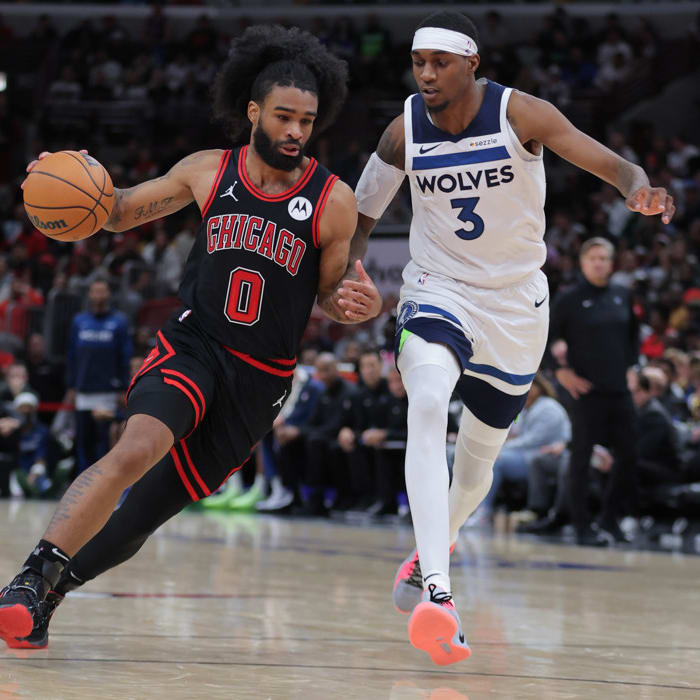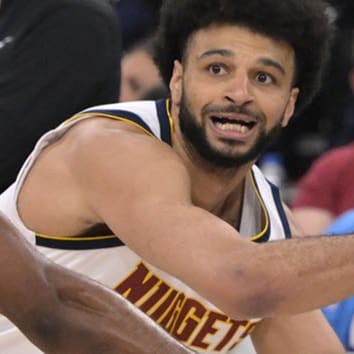ATLANTA HAWKS
By Zach Sundelius
RotoWire Editor
STATE OF THE FRANCHISE
The Hawks exceeded all expectations last season, winning a first-round playoff series for the first time in a decade despite a roster that lacked a quality bench. After knocking off Dwayne Wade and the Heat in the first round, the depth issues eventually doomed Atlanta when starters Joe Johnson (ankle), Al Horford (ankle) and Marvin Williams (wrist) all missed time in the conference semifinals against Cleveland, which the Cavs won in a four-game sweep. Now fully healthy, the Hawks enter the 2009-2010 season with the same starting cast, along with improved depth following the offseason additions of Joe Smith and Jason Collins via free agency, Jeff Teague through the draft, and Jamal Crawford in an offseason trade with Golden State. On paper, Atlanta looks stronger than the team that won 47 games last season, especially if it manages to stay healthy and Josh Smith rebounds from a somewhat disappointing season. However, the chance of any upward mobility in the Eastern Conference standings seems limited since the Hawks are far from being in the same class as the East's elite trio of Cleveland, Boston and Orlando. After years of futility, it's a nice sign of progress that the franchise has found some consistency and seems to be a good bet for a third consecutive playoff berth, but a deep postseason push will likely have to wait.
PLAYING TIME DISTRIBUTION
The aforementioned lack of depth led to a tight rotation in Atlanta last year, with all five starters averaging more than 33 minutes per night. However, the new additions will need playing time, so some of those starters' minutes will have to come down. The center position remains largely unchanged, with Al Horford playing 30-35 minutes and Zaza Pachulia getting 15-20. Jason Collins and Randolph Morris will battle for scraps, though Collins should see increased floor time against opponents with lots of size in the frontcourt. At power forward, the addition of Joe Smith will drive Marvin Williams' minutes down to around 30, while Smith logs 15-20. Josh Smith remains the starter at the three and will again play roughly 35 minutes each night, but backup Maurice Evans may see his court time drop to 15-20. Joe Johnson will pick up some of the slack if the Hawks slide him to small forward on occasion to get Jamal Crawford more time. Johnson averaged nearly 40 minutes last season, but Atlanta would like to cut that down a bit to both keep him fresh and allow Jamal Crawford to log around 25 minutes at the two. If Atlanta views Jeff Teague as Mike Bibby's eventual replacement, they'll try to get him on the floor for 10-15 minutes, with Bibby settling in around 30-32. Crawford will likely spend a few minutes at point guard as well.
PLAYER OUTLOOKS
Center
Al Horford: Horford battled injuries last season, missing 15 games with knee and ankle problems, but managed to improve on his rookie numbers in nearly every category. He is a tenacious rebounder and showed improvement as a shot-blocker, swatting 1.4 per game. Offensively, he's still maturing and lacks a reliable jump shot, but he did shoot over 52 percent from the floor and averaged 11.5 points. With little competition for playing time, Horford could experience further improvement in his third season.
Zaza Pachulia: Horford's emergence has relegated Pachulia to backup duty, and he averaged just 6.2 points and 5.7 rebounds last season. He did start 26 games, but most of those came when Horford was injured, so that number will decrease this season assuming Horford stays healthy. Even as a starter, he didn't offer much fantasy productivity.
Jason Collins: Collins averaged just 1.8 points last season and offers next to nothing offensively. He will see time against some of the bigger frontcourts, however, because he has the size and experience to match up with the likes of Dwight Howard and Shaquille O'Neal.
Randolph Morris: Morris did little for the Hawks last season, averaging 0.8 points and 0.9 rebounds in 23 games. He'll continue to receive very limited playing time behind Horford and Pachulia.
Forward
Josh Smith: Smith's numbers dropped in nearly every major category last season, including points, rebounds, assists, steals and blocks. He failed to live up to expectations, but at just 23 years old, his chances of a bounce-back seem promising. His athleticism is unmatched, which leads us to believe that last year's drop from 2.8 blocks to just 1.6 was an anomaly rather than the start of a trend. One big question will be whether he can improve his performance at the charity stripe, where his percentage plummeted to 58.8 last season. If he can improve at the line and consequently boost his scoring average, he'll put the struggles of 2008-2009 in the rearview mirror.
Marvin Williams: Also only 23 years old, Williams battled back and wrist injuries that forced him to miss 21 games last season. When healthy, he demonstrated improvement defensively, posting career highs in rebounds (6.3) and blocks (0.6). He also continues to develop as a shooter, making a career-best 0.9 three-pointers per game. The Hawks were pleased enough with Williams' production to sign him to a five-year, $38 million deal in the offseason, and he's still young enough to improve.
Joe Smith: Smith was a nice offseason addition for the Hawks, whose lack of depth was exposed by the Cavs in last year's playoffs. Fantasy-wise, he won't offer much, but his reliable jump shot will force defenses to pay him some attention, creating room for Atlanta's scorers. He'll also provide veteran leadership to a young frontcourt that basically went just three-deep (Horford, Williams, Pachulia) last season.
Maurice Evans: Evans plays both guard and forward, but will likely see his minutes decrease this season despite that versatility. Atlanta will need to get Jamal Crawford's scoring ability on the court, which could push Joe Johnson to the three at times and cut into Evans' minutes. He'll likely dip below 20 minutes per game this season, causing a drop in points (7.2 last season), rebounds (3.0) and steals (0.6).
Guard:
Joe Johnson: Everything the Hawks do starts with Johnson, who was on the floor for nearly 40 minutes per game last season and has missed more than three games just once in the last seven years. If consistency across multiple categories is what you're after, Johnson is your guy. His averages across all the major categories were nearly identical to his numbers from the previous season, and he helped lead Atlanta to the playoffs in both campaigns. The addition of Jamal Crawford may sap Johnson of some shooting opportunities, but by the same token, Crawford may draw away some defensive attention and free up space for Johnson when they are sharing the floor. He'll hurt you a bit in field-goal percentage, but is a strong contributor in nearly every other category.
Mike Bibby: Bibby is a perfect two-for-two on leading the Hawks to playoff berths since coming over in a midseason trade in 2007-2008. He inked a three-year contract this offseason to stay in Atlanta, but he is 31 years old, so the Hawks have begun bracing for his eventual departure by adding depth around him. Both Jamal Crawford and rookie Jeff Teague pose a threat to Bibby's playing time, and Bibby has become a bit of a liability defensively. But despite all the concerns, he remains a decent scorer who can really help out a fantasy team from behind the arc (2.1 three-pointers made last season) and deliver reliable assist totals (5.0).
Jamal Crawford: The Hawks envision Crawford as an offensive spark plug off the bench, capable of making an already productive backcourt even more potent. After starting for the Warriors last year, he'll have to adjust to this new sixth-man role and the decreased playing time that goes along with it. Assuming he accepts his slightly diminished role, Crawford should emerge as a reliable combo-guard for Atlanta. The decreased minutes will inevitably correlate with a decrease in stats, but not enough to prevent him from being a usable source of points, steals, assists and three-point shooting.
Jeff Teague: The presence of Bibby and Crawford limit Teague's potential as a rookie, but he should see 10-15 minutes as the Hawks attempt to keep Bibby's 31-year-old legs fresh and evaluate Teague's ability. He's more of a shooter than a true point guard, and has the quickness and ballhandling ability to create his own shot. Unless injuries strike, he probably won't see enough court time to be a fantasy factor this year, but Teague could be a name to stow away in your mind for a year or two down the road.
Mario West: West enters training camp without a guaranteed contract and will have to fight his way onto the roster much like he has the last two seasons. If he does manage to claim a bench spot, he'll be hard-pressed to match last year's 5.1 minutes per game now that the Hawks have added several reinforcements to the backcourt.
Sleeper:
Josh Smith: Smith obviously doesn't fit the traditional "sleeper" mold of a mid- to late-round fantasy pick who will come out of nowhere to have a productive season, but if you define sleeper as a player who might exceed preseason expectations, Smith is a good bet to do so. Some of your fellow drafters might be down on him after last year's struggles, which could turn him into a good value pick if he falls in your draft.
Bust:
Jamal Crawford: Crawford is a terrific scorer, but he also takes a lot of bad shots, resulting in a 40.6 field-goal percentage as a Warrior last year. With his minutes sure to decrease this season, he may feel pressed to make the most of his time on the court, which isn't likely to make his shot selection any more prudent. On top of that, he's not a sound defender or a willing rebounder, which cuts into his production in the defensive categories.
Article first appeared on 9/30/09









